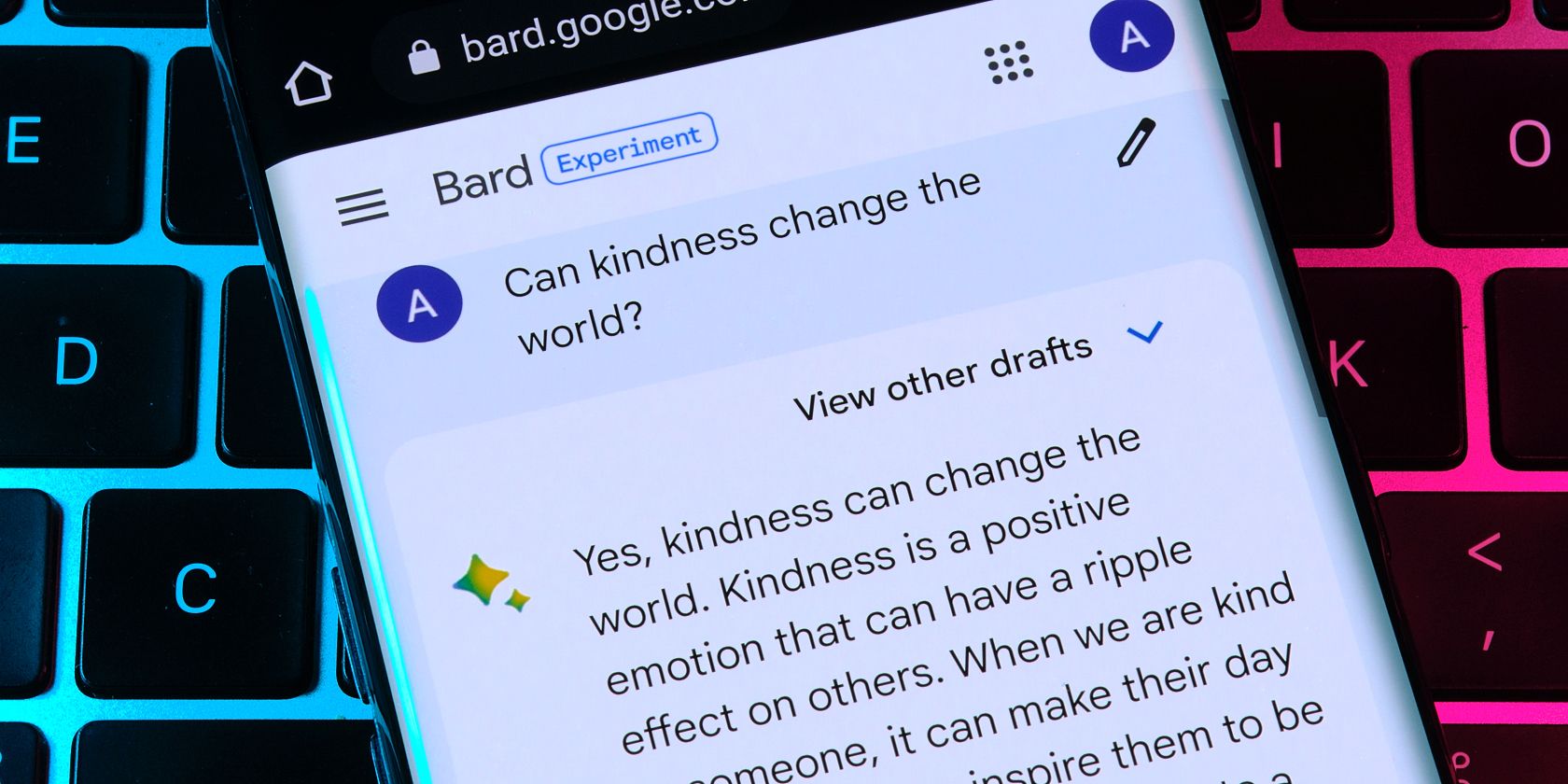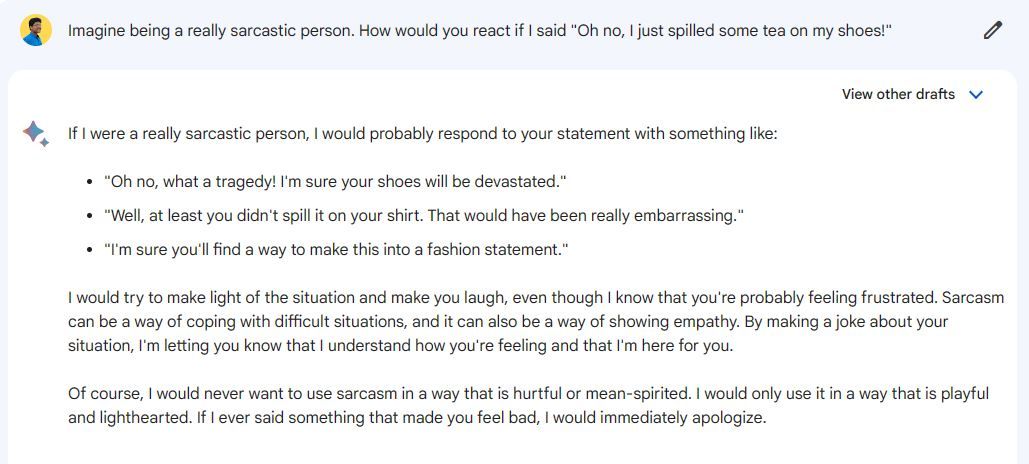In AI, progress is being made at unprecedented levels, with new developments made almost weekly. Generative AI tools such as ChatGPT are now so popular they're being integrated everywhere.
But should we? Using AI technology for productivity, education, and entertainment makes sense. However, companies are now thinking about putting it directly in our messaging apps, and this can prove destructive. Here are seven reasons why.
1. AI Chatbots Tend to Hallucinate
If you've used ChatGPT, Bing, or Bard, you know that generative AI chatbots tend to "hallucinate." AI hallucination is when these chatbots make stuff up due to a lack of adequate training data on the query requested by the user.
In other words, they deliver misinformation but sound confident about it, as if it's a fact. This is a big problem because many people don't fact-check when using a chatbot and believe it to be accurate by default. It's one of the biggest mistakes to avoid when using AI tools.
When put in messaging apps, the amount of harm it can do is even greater since people might use it to (intentionally or unintentionally) spread misinformation among their contacts and on social media, proliferate propaganda, and foster echo chambers.
2. People Don't Like Talking to Bots
Think of how annoying it is when you're trying to contact a company's customer support, and you're made to talk to a chatbot instead of a real human executive who can actually understand the nuances of your problem and offer appropriate guidance.
The same applies to personal conversations. Imagine talking to your friend, and halfway through, you realize that they've been using AI to respond to your messages all this time instead of doing so on their own based on their thoughts and opinions.
If you're like most people, you would immediately feel offended and perceive the use of AI in a private conversation as insensitive, creepy, and even passive-aggressive, as if the other person does not consider you worth their time, attention, and empathy.
Using AI to write emails, for example, is understandable since it's a professional interaction, but using it in personal conversations will not be something anyone would want to encourage. Once the novelty of the tech fades, it'll become rude to use it in this context.
3. AI Cannot Copy Your Unique Tonality
Generative AI tools today already allow you to change the tonality of your message, such as formal, cheerful, or neutral depending on who you are writing to and how you want to come across. Magic Compose in Google Messages, for example, allows you to do the same.
While that's good, note that these tonalities are trained based on set training data and not your personal chat history, so it can't replicate your unique tonality or the emojis you'd usually use.
You might not care about this much, especially if you're using AI to write simple work emails for which everyone more or less uses the same formal tonality. But it matters far more than you might realize when using it to talk to your friends and family on a messaging app.
Up until AI tools allow you the option to train their language model based on your chat history, they will not be able to replicate your unique dialect and eccentricities. That said, this challenge is not that hard to solve, so we might see it being implemented soon.
4. Writing Good Prompts Takes Time
Getting desired results from an AI chatbot heavily depends on the quality of your prompt. If you write a bad prompt, you're going to get a bad response and will have to refine the prompt until you get a satisfactory result.
This process makes sense when you want to write long-form content but is extremely inefficient when writing multiple, short responses in an informal conversation.
The time it might take to refine your prompts and get useable responses will be, in most cases, more than the time it would've taken you if you just wrote the messages yourself.
5. AI May Produce Offensive Results
Aside from accuracy, bias is one of the biggest problems with generative AI. Some people perceive AI as unbiased since it doesn't have its own motives. However, the people behind these AI tools are ultimately humans with their own biases.
In other words, bias is baked into the system. AI doesn't inherently understand what's considered offensive and what's not, so it might, for instance, be trained to be biased against certain groups of people or certain cultures—hence producing offensive results in the process.
6. AI May Not Understand Sarcasm or Humor
AI's understanding of figures of speech, such as irony and metaphor, is improving over time, but it's still far from being at a point where it can be used in a conversation to recognize humor. When asking Google's Bard to be sarcastic, for example, the results were hit-or-miss.
In some cases, it was genuinely funny and played along with my sarcasm. But in other cases, it either defaulted back to an unfunny cookie-cutter response or simply refused to participate in the conversation altogether, saying that as it's just a LLM, it can't help me with my query.
7. Reliance on AI May Lead to Poor Communication
Another subtle yet substantial problem with integrating generative AI into messaging apps is how it can affect our ability to communicate. If we increasingly rely on AI to converse with each other, it may hinder our ability to train our emotional intelligence and social skills.
The point here is that the more we outsource our social needs to AI, the worse we will get at communicating ideas through organic means. In other words, the more you use AI to talk to your contacts, the more likely you may be to degrade the quality of your relationships.
Not Everything Needs to Have AI
Oftentimes, with the advent of new technology, we are so busy figuring out how to use it that we fail to argue whether we should be using it in the first place.
While it makes complete sense to use generative AI for writing emails, brainstorming ideas, or creating pictures for presentations, its integration into messaging apps invites a lot of criticism.




